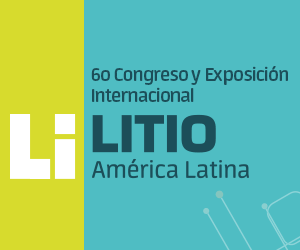
By Lydia Polgreen
For over a month now, my mother has been pestering me about her missing passport. It was in her closet, she said, and suddenly it was gone. It was expired, and renewing would be easier if she had the old one. She had no immediate travel plans, just a vague desire to visit Ethiopia, the country where she was born and raised, at some point in the future.
As we often do with our elders, I gently brushed off her increasingly insistent requests for help. She lives in Maryland; I live in New York. It hardly felt urgent. She is forgetful. She misplaces things all the time. It would turn up, I was sure.
When I woke up the morning after Donald Trump had been swept back to the presidency by a slim but decisive margin, I was seized by a sudden, cold panic with the thought ‘Where is Mom’s passport?’ What if Trump’s administration made good on its deportation promises and she suddenly needed to prove that she is, indeed, a naturalized citizen of this country? Did my frail, 73-year-old mother have her papers in order should the knock come on her door?
This feeling caught me completely by surprise, much more so than Trump’s victory, which, after all, was a very likely possibility. I am not given to panic. I think catastrophic thinking is almost always overblown. Panic and alarm: These are feelings that a lifetime of observing the world from a sanguine, journalistic remove, always taking the long view, had taught me to extinguish the moment they flared. What good can come from such strong emotion?
After all, we’ve been here before, haven’t we? Trump was president once before, and even though he managed to enact a great deal of cruelty and bungle a pandemic, most of us survived, didn’t we? He was never that popular with voters, but even an uninspiring candidate like Joe Biden managed to defeat him soundly at the ballot box.
Yet as I’ve tried to summon that sanguine self over the past two weeks, she has stubbornly refused to show up. I have a sense that many other people are feeling similarly abandoned by their more resilient selves, instead finding a new, excruciating sense of vulnerability. The sensation has only deepened as Trump’s preposterous cabinet announcements have rolled out and his cruel policy plans for grotesque campaigns of deportation, vengeful prosecution and heedless budget slashing come into view. Despite myself, I am panicking.
It is hard not to ask what clues I might have missed along the way. For instance, why hadn’t I paid more attention to what my mother’s fixation on finding her passport might have told me? She was asking about it in part because she was considering returning to Ethiopia permanently in search of a lower cost of living. Like a lot of Americans, particularly immigrants, she has been very worried about money. She lives on the Social Security and veteran’s benefits my father earned. Groceries are expensive, even for an older woman living alone who doesn’t have much of an appetite. The electricity bill for her tiny apartment, her cable TV and internet: These things seem, as a portion of her meager income, obscenely expensive, never mind the escalating costs of prescription medication.
Another blow came a couple of months ago, when the giant corporation that owns the apartment complex where she lives hiked her rent by nearly 10 percent. When I saw the amount, I felt a wave of nausea. I assured her that of course my brothers and I would help, but how would a person who did not have an affluent child with no children of her own manage such a sudden, sharp hike in the cost of something as essential as shelter? And in any case, she hated the idea of being a burden on her children. Looking now at her situation, indeed around my neighborhood and city, our country, this world, I can see that we are clearly on the wrong track.
Thinking about this election has felt a bit like staring into the sun. The blaze blinds rather than illuminates. Most especially at times of confusion and overwhelm, I have found it useful to turn toward similar but more distant stars for understanding. It is useful to ask: Where have I seen this particular shade of light? When have I felt the scorch of this particular form of heat?
My mind instantly went to the first time I became acutely acquainted with my own vulnerability, almost 20 years ago. I was 29 and had just started a job as a foreign correspondent for The Times in West Africa. Many of my friends in New York were envious because I was moving overseas right after George W. Bush had been re-elected, this time winning both the popular vote and the Electoral College, despite the moral atrocity of the Iraq war and so much else.
But all that hardly crossed my mind. I was thrilled to start my dream assignment. I was so insulated from worry by my youthful cloak of invincibility that I brushed aside strange things that were happening with my body. Usually I had a voracious appetite, but I was somehow never hungry. Despite this, my trousers kept getting snugger even as my watch band got looser. A sharp, jangling pain rattled in my belly when driving across potholed streets.
One day at the beach a woman congratulated me on my pregnancy. I was not pregnant, but it was undeniable that I looked as though I was. Shaken from my complacency, I went to the doctor. Within a couple of days I was on a plane headed back to New York, where I would be diagnosed with advanced ovarian cancer. It was a disease that typically struck much older women, and I had no family history to explain its early arrival. It was, my oncologist assured me, just dumb luck.
Six months later, after surgery and rounds of chemotherapy, I returned to my dream job. But I had been unmistakably altered by the experience. Once, I feared almost nothing. Not in a reckless way, but through the cool, rational assessment of odds. I had once been able to say, when boarding rickety commercial airplanes in impoverished countries, what are the odds of this plane crashing? Traveling by road, I knew, was statistically speaking much more dangerous. Cancer demolished this equanimity. If that random, extremely unlikely diagnosis could happen to me, then anything could. For a time this fear was all-consuming and paralyzing. Eventually, I learned to integrate this new uncertainty into my risk calculus and got on with my life and work.
What that experience taught me is that none of us know the direction or velocity of our vulnerability. It is, mercifully, unimaginable to us. The best-case scenario for the luckiest among us is a gentle drift into frailty and old age. We will all die, one way or another, and so will everyone we love. Thankfully, I have remained cancer-free. I was both wildly unlucky and incredibly lucky at the same time.
Trump’s victory feels like a diagnosis, though Americans disagree profoundly on whether he is the disease, symptom or cure. Anyone who has faced mysterious symptoms knows that diagnosis brings its own bleak satisfactions, even or especially if the news is very bad. Cancer, with apologies to Susan Sontag, is an irresistible metaphor for our current moment. If 2016 felt like a fluke, a bolt of lightning akin to a freak accident, this feels systemic. What is cancer, after all, but something mysterious and unconstrained that our own body builds within itself?
America is about to undergo a radical course of treatment. My mother hoped Kamala Harris’s promises to take on corporate landlords, to lower prescription drug prices and to protect Medicare and Social Security would help her live a better life. Ultimately, what appears to be, at best, a very narrow majority of Americans decided to vote for Trump’s hard medicine.
Early signs make it likely that his second term will make his first look like child’s play. With control of Congress and a conservative supermajority on the Supreme Court, there is little holding back his darkest impulses to punish his enemies and reward his friends. He seems determined to take his slender victory and treat it like a historic mandate to reshape American life in profound ways. No matter how you voted, we are all about to find out precisely how vulnerable we really are.
_______________________________________________________
Lydia Polgreen is an American journalist, an Opinion columnist at The New York Times and a co-host of the “Matter of Opinion” podcast. She was editorial director of NYT Global at The New York Times, and the West Africa bureau chief for the same publication, based in Dakar, Senegal, from 2005 to 2009. She also reported from India. She spent much of her early career in Johannesburg, South Africa where she was The New York Times South African Bureau Chief as well. She was editor-in-chief of HuffPost from 2016 to 2020, after which she spent about one year between 2021 and 2022 as the head of content for Gimlet Media.[4] In 2022, after leaving Gimlet, she returned to The New York Times as an opinion columnist. The views expressed are not necessarily those of EnergiesNet.com.
Editor’s Note: This article was originally published in The New York Times, November 20, 2024. We reproduce it for the benefit of readers. EnergiesNet.com is not responsible for the value judgments made by its contributors and opinion and analysis columnists.
Opinion | Trump’s Victory Feels Like a Diagnosis – The New York Times
Usage Notice: This site contains copyrighted material the use of which has not always been specifically authorized by the copyright owner. We make such material available in our effort to advance understanding of issues of social, environmental and humanitarian importance. We believe this constitutes a “fair use” of such copyrighted material as set forth in Section 107 of the U.S. Copyright Act. Pursuant to Title 17 U.S.C. Section 107.
For more information, visit: http://www.law.cornell.edu/uscode/17/107.shtml
EnergiesNet.com encourages individuals to reproduce, reprint, and disseminate through audiovisual media and the Internet, Petroleumworld’s editorial and opinion commentary, provided that such reproduction identifies, the author, and the original source, http://www.petroleumworld.com and is within the fair use doctrine of Section 107 of the United States Copyright Act (US Copyright).
energiesnet.com 25 11 2024




